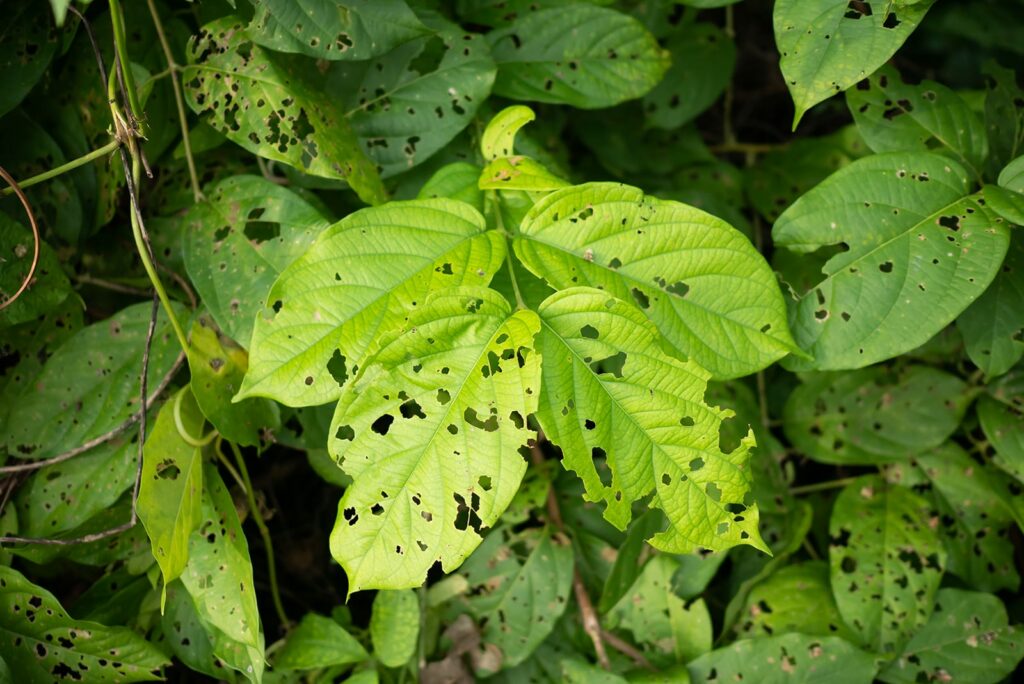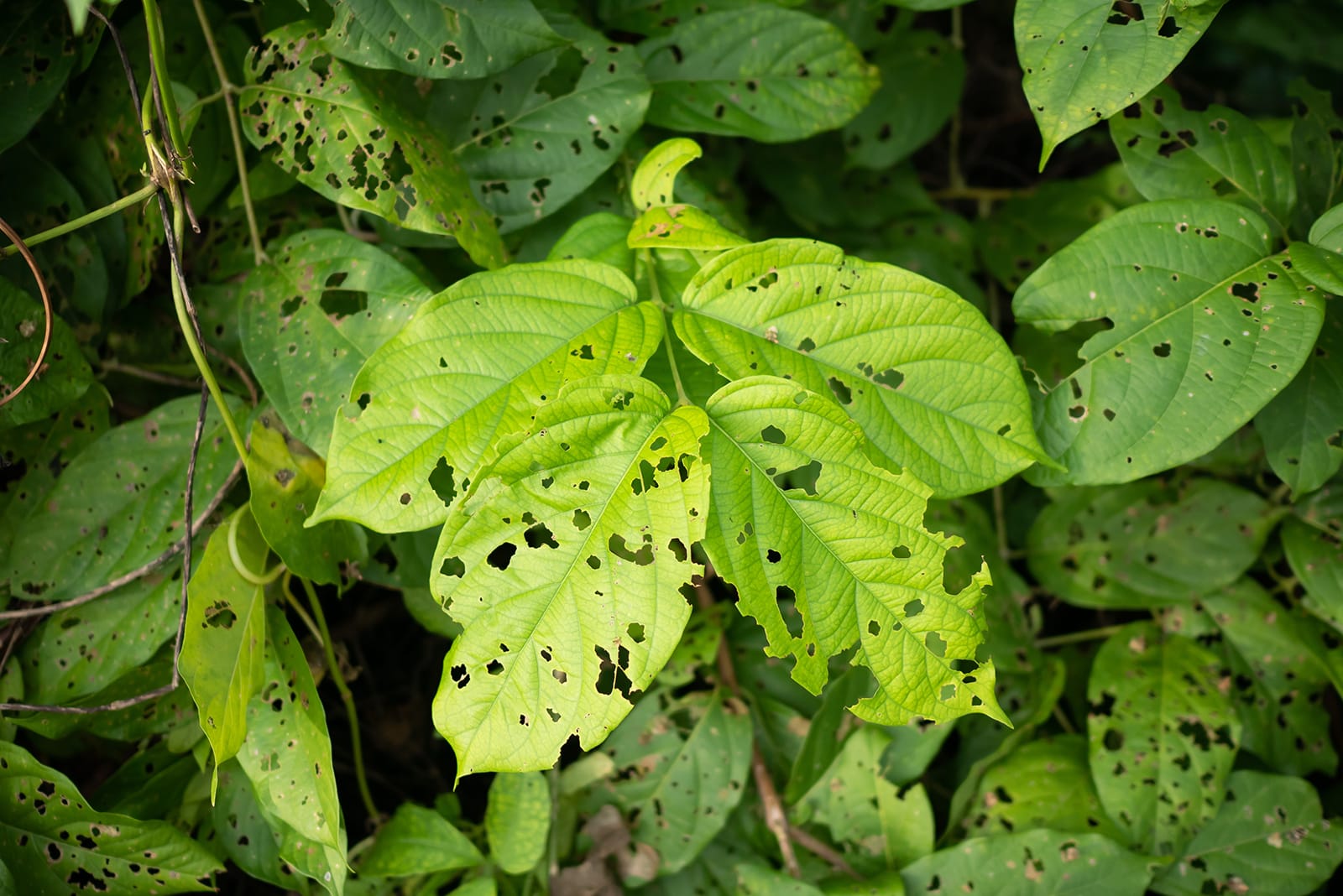
Contents

Homeowners take pride in their gardens, no matter what its size or what is being grown. So it should come as no shock that disappointment and anger can be felt when they discover that something has been eating the plants. If you can identify what pests and bugs are eating your plants, then you can better defend your garden.
Many insects eat plants, but only a few can cause significant enough damage. In most cases, there won’t be enough damage done to put the plant at risk, but it is more likely that the pest is just hurting the plant’s appearance. That pest would not want to kill its host plant anyway, since it is in the insect’s best interest to keep its food source available.
It is not only the type of pest that can cause concern but also the amount. One aphid can do only a small amount of damage, but hundreds of aphids may require the gardener to implement a better strategy for management. However, it is possible for one hornworm to nibble an entire tomato plant down to its nub.
Slugs are just one type of pest that can be quickly identified. They are likely to be found in damp, shady places and will feed during the nighttime. You can spot slugs feeding on the underside of the leaf, leaving a hole about one-quarter to one full inch in diameter. A slug won’t start eating from the edge like a caterpillar, but start right in the middle.
Conversely, those caterpillars prefer to eat during the early morning as opposed to the night. If you find caterpillars or their eggs on your plant, you can pick them off with little effort, and also use sticky traps to catch adult moths before they can lay those eggs on your plants.
A more invasive species that will target your flowers in the Japanese beetle. It has very few natural predators, and can also mimic bees with its buzzing, which may protect them from birds. They can and will chew on everything, not just leaves. You can find Japanese beetles even eating flowers and their blossoms.
But it is not only insects that are out there eating away at your garden. Rabbits are becoming more common, and more rabbits means they need more food. They will target almost anything in your garden, and it will be obvious when they do. Protecting your garden from rabbits means constructing some defensive measures, like putting up fencing or caging.
For both amateur and professional gardeners, a successful and bountiful garden is a great source of pride. To keep that garden growing, protecting it from pests is essential. For more information on how to prevent pests from taking over your yard and garden, call Van Den Berge Pest Control today at 616-392-7367.
Trust the locally owned, widely renowned experts at Van Den Berge Pest Control for all of your pest needs. With over 100 years of combined experience throughout the Holland, MI-based pest control team, you know you’re in excellent hands with our state-certified experts.
Recent Posts
Why Are Wasp Exterminator Services Priced Differently?
When you consider hiring a wasp exterminator, you might notice varying prices that can leave
10 Tips for Affordable Wasp Extermination Costs
When dealing with wasp infestations, costs can quickly add up if you’re not careful. To
Detailed Wasp Exterminator Service Cost Insights
When it comes to wasp exterminator, understanding the costs involved is essential for effective budgeting.
